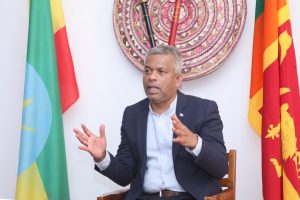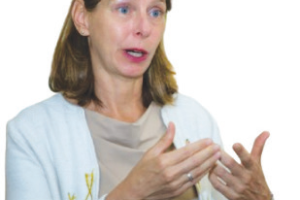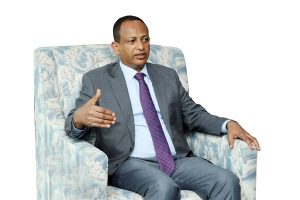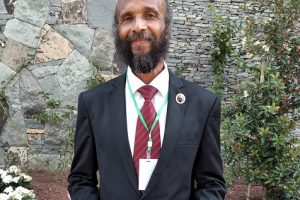Today’s guest is Dr. Hailu Araya. Dr. Hailu was born in 1936 at Maichew, a town in the southern part of Tigray. He followed his elementary school in Maichew and Addis Ababa. Then, he went to a teachers’ training institute in Harar and took training for four years to be an elementary school teacher.
After finishing training, he taught for two years. Then, he went to Haile Selassie I University (later named Addis Ababa University), the first institution of higher education. After two years of stay in the aforementioned University, he went to the US and he received BA from New York University.
Following that, he studied at Columbia University, also in New York City, and at Georgetown University in Washington, D.C, where he received his MA and Ph.D respectively. He also taught at Central College in Iowa for two years.
He taught English and African Literature. Back home, he taught at the Polytechnic Institute in Bahir Dar for three years and finally at the Haile Selassie University. The Ethiopian Herald had a moment of togetherness with Dr. Hailu Araya.
Ethiopian Herald: Would you tell us how you were drawn into politics?
Dr. Hailu: I was drawn into politics “by accident”, I might say. In 1982, I was teaching at the Addis Ababa University and also working as the Dean of the Institute of Language Studies (ILS). One day, I was called to the office of Col. Mengistu Haile Mariam, Chairman of COPWE (which eventually became WPE) and Head of State. Apparently, the Chairman wanted to establish a special institute (later named The Institute for the Study of Nationalities) that would study and prepare documents necessary for the drafting of a constitution.
Many highly educated professions were selected for the task from many other institutions and I was asked to be among them. I accepted the call. I was asked to transfer from the University to the Headquarters of COPWE, with the understanding that I could continue to teach at the University, part time. I was assigned as the Deputy Head of the Department of Nationalities.
Gradually, it became apparent that, given my position in the department, I would be a party member. I was asked to be a member and I accepted it. At the time, I believed that I was truly working for a good cause. After the fall of the Derg and the coming of EPRDF, I joined opposition parties. In 1992, I joined EDP (Ethiopian Democratic Party) and served as a Deputy Chairman. In 2005 EDP came into a four-party coalition forming CUD (Coalition for Unity and Democracy). CUD won the 2005 election but it was hijacked by EPRDF.
I was one of the successful CUD candidates and represented a constituency in Addis but chose not to join the parliament. After CUD was given to another group as a result of complex legalities, many of us created UDJ (Unity for Democracy and Justice) on the foundation of our former CUD. UDJ once again joined another four-party coalition called MEDREK, under which we participated in the 2010 election. I competed in the election but did not win.
The EPRDF had total control of the election. Soon after, UDJ parted with MEDREK and went on, on its own, for some years. Soon after, a faction was created within the party. The Election Board favoredthe faction and gave it the party permit. After that, I did not try to join any other party, although I am active in following political matters.
Herald: Through the prism of the last three regimes, how do you see the life of Ethiopian people with special emphasis on people of Tigray?
Hailu: There have been slow but steady improvements in the life of the people through the three regimes, particularly in the areas of education, health, transportation, mass media and political awareness. However, in the last 80 years, those changes have not brought significant change in the life of the people. For example, the country’s HDI (Human Development Index) remains steady at around 173 compared among 198 countries, with Norway standing as number 1. The people continue to suffer seriously from the steep and accelerating rises of the cost of living. In the past, the Tigray State used to be perhaps one of the least developed states in the country in terms of natural resources, and for good states. For example, those natural resources have been depleted due to overuse by growing populations over the centuries. In the last some years, however, the state seems to be reviving significantly. According to the 2017 HDI, from the 11 states (including Addis and Dire Dawa) Tigray stands as 5th. Only Addis Ababa, Harari, Dire Dawa and Gambela are ahead of it. SNNP, Benshangul Guzum, Oromia, Amhara, Somali and Afar follow it. Given the history of the Tigray State, the change seen is quite significant.
Herald: Do you believe TPLF genuinely represents people of Tigray? What are its shortfalls?
Hailu: The key work in your question is “genuinely”. I do not believe that TPLF represents the Tigray people genuinely. For example, from its past history, when it declared to establish a “Republic of Tigray”, it never consulted the Tigray people. When it declared Marxism-LeninismStalinism-Mao Zedongism and all that, it never consulted the Tigray people. At present, it has turned the region into a haven for violators of human rights and corruptors. This is not the will of the Tigray people. TPLF still clings onto Revolutionary Democracy uniquely, without the explicit will of the Tigray People. In short, TPLF represents its unique self and its ideology.
Herald: Why do you think EPRDF included Article 39, which promotes secession, in the constitution?
Hailu: Given its communist background, EPRDF (particularly TPLF) believed that Ethiopia was a “prison of nations, nationalities and people”. I believe that Article 39 is designed to serve two purposes. The first purpose is to ensure that those nations, nationalities and people are truly free and that if they wish to come into a political union, they would do so on the basis of equality and mutual consent. The second purpose is that if any party decided to disengage from the union, it could do so in a civilized manner and without causing the bloodsheds that are so common in the process of such disengagements.
I have heard several conspiracy theories on the purpose of Article 39. I do not wish to go into it now. I should, however, say that it was positive when EPRDF created an environment where people came together to form a union on the basis of equality and mutual consent and, if necessary, to dissolve the same in a civilized manner. However, I must say that EPRDF was honestly mistaken when it determined that the partisans in the union (federation) should be ethnic units (nations, nationalities and people) instead of individual citizen identified as the fundamental units of the society.
This is one of the fundamental problems of the Ethiopian Constitution. On Article 8, it talks about the “Sovereignty of the People”, a collection of individual citizens. In sub-article 1 of the same Article, “All sovereign power resides in the Nations, Nations and Peoples of Ethiopia” (ethnic entities). In the end, I wish to add my voice to the call for revising the Constitution and that one of the articles to be stricken is Article 39.
Herald: How do you evaluate the ongoing reform in the country?
Hailu: I see that the present reform going on in the country is really phenomenal. It is my first time in this country to see a government leadership that is open and honest. So much has been achieved in such a short time and this has been inspiring hope, confidence and trust in the people. Despite the impressive beginning of the present government, however, there are numerous problems that have been piling up through the past years and requiring hard work by the present generation. It is apparent and encouraging that many of these political, economic and social problems are already being addressed as short and long term targets.
I am now 82 years old and I have studied and worked through the Haile Sellassie, the Derg and the present EPRDF regimes. I am happy to have lived this far and to have been able to see the democratic light that I am seeing during the last eleven months. Herald: Some corrupt officials engaged in the violation of human rights are trying to hide behind ethnic nationalism .How do you see that? Hailu: All I can say is that it is an utter disgrace for the individuals that are accused of directly engaging in the violation of human rights and also for those who are directly providing a haven for the accused. From what I know, the vast majorities of the Tigray people are Godfearing and law-abiding citizens. They must be going through pains inside as their name is being dragged and associated with crime. What is equally painful is that they do not have the freedom to express the frustration that is in them.
Herald: What is your take on citizenship and ethnic politics?
Hailu: Citizenship politics is a science based on free and democratic principles, whereas ethnic politics is a low form of association based on binding blood relations. In citizenship politics, the ultimate deciding unit is the free and democratic individual person whereas in ethnic politics it is the ambiguous mass. Ethnic politics is, by its nature, divisive, exclusive and selfish. Ethnic politics is one of the curses that TPLF/ EPRDF has brought upon Ethiopia. The people have to think and act in unison to get rid of this curse.
Herald: What do you say about the clashes among national states based on boundaries and also identities?
Hailu: It is well known that the people in the various states of the country have lived side by side relatively harmoniously. Yes, there were clashes of various dimensions at various times but they were managing indigenously with limited damages. The clashes among the national states based on boundaries and identities are of different nature these days. I believe that these clashes are caused mainly by three elements in the society.
These are people who are hungry for political power, those who are hungry for wealth and those who are driven by religious extremism. These elements are capable of teaming among themselves by various formulas and for the purpose of satisfying their respective hungers. It is these elements, individually or in combination, that agitates, misleads and pushes the people in wrong directions and to clash against each other. There could also be foreign elements with their own goals. I believe that the solution to these clashes is, first, founding a sound, democratic government in which just rules are applied firmly but wisely. The key factor in this process is ceaseless education.
Herald: What do you say about federalism, is it appropriate for Ethiopia?
Hailu: Federalism is, so far, the best form of government. Under normal conditions, federalism would be appropriate for Ethiopia. At present, however, Ethiopia is not under normal conditions. Therefore, federalism is not appropriate for it. In a healthy federalism, the constituting units are based on the democratic principles engendered by the human intellect. On the other hand, the units of the present Ethiopian federation are based on blood relation or ethnicity. Federalism based on ethnicity is a low grade union and sickly. The present ethnic federalism must be scraped and replaced by a robust one based on the democratic and timetested principles.
Herald: Some say education in the country failed starting from the reign of EPRDF what is your take on that?
Hailu: Education in Ethiopia has failed throughout the three regimes in degrees and for different reasons. During the Haile Sillasie regime, education failed, I believe, mainly for two reasons. First, the country was just beginning modern education. It did not have the necessary resources. It did not have the necessary experience. It could not possibly reach all the school age population. Second, the curriculum was imported from abroad, including teachers and textbook. This system, on the outside, purported to show quality education. In actuality, it produced young people not rooted in the social soil of their country.
They knew more about the outside world than they did about their own. During the Derg, the school age population grew significantly but the quality of education continued to suffer. It was also tinged with communist ideology. During the EPRDF, school age population exploded, but education was no longer a free pursuit of knowledge and wisdom but rather a tool for promoting Revolutionary Democracy, an ideology. Consequently, quality of education plummeted, particularly in the public school system. One of the urgent tasks of the present reformed EPRDF is bringing up the quality of education from the abyss.
Herald: You were the president of the Ethiopian Language Institute during the Derg regime? What activities did you undertake?
Hailu: In 1974, while I was teaching at the Addis Ababa University, Derg proclaimed the “Development through Cooperation Campaign”. During the campaign, my colleagues and I were assigned to the literacy department. We prepared alphabets for five languages (Amharic, Oromifa, Tigrigna, Somaligna and Afarigna) and prepared alphabets, posters and readers. This literature was distributed to the peasants in hundreds of thousands throughout the country and used for two years. Later, alphabets, posters and readers were prepared for 15 languages. As a result of this literacy campaign, the illiteracy rate in the country, which was at 93%, was reduced to 37% as a result of the campaign.
After the end of the literacy campaign, I returned to the University and worked as teacher and Dean of the Institute of Language Studies (ILS) where I participated in the development of the Department of Ethiopian Languages and Literature as well as the Department of Linguistics where major Ethiopian languages are being taught and researched at present.
Herald: There are more than eighty ethnic groups in the country, what activities did you perform towards the development of their languages? What additional tasks must be done regarding this issue?
Hailu: As for the question on “the way forward”, I wish to make one point. The Ethiopian people have never been, to this very day, masters of their political matter. In reality in the past, guardians assigned by God above or self-styled liberators decided on their behalf. At present, the primary task of the reformed EPRDF is to enable the people to become owners of their legitimate power.
Herald February 24/2019
BY AMBO MEKASA




